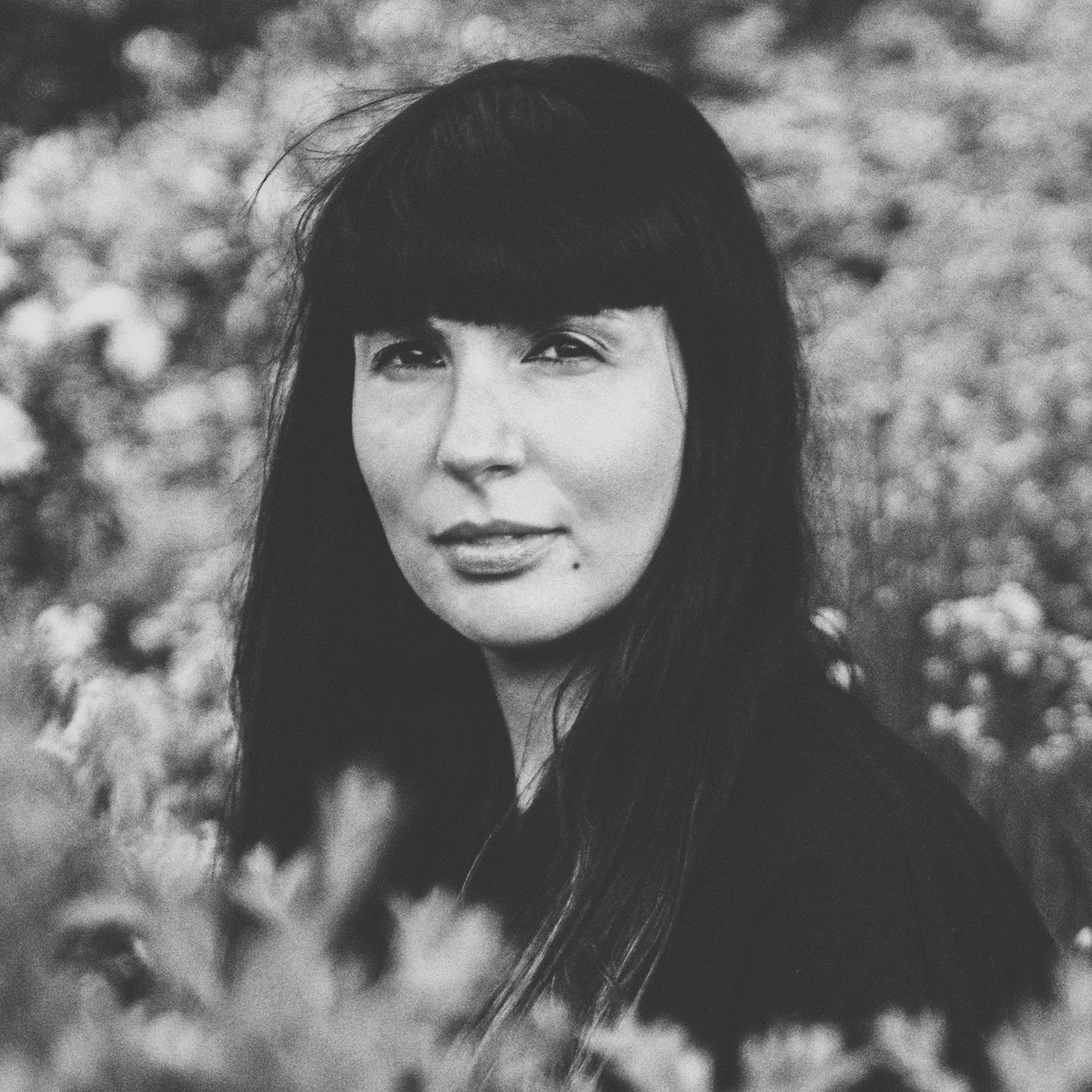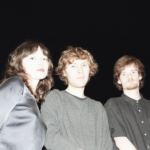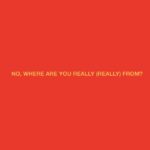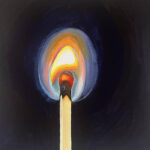Interview: Gianna Lauren On New EP and the Pitfall of Vanity Metrics
Posted: by The Alt Editing Staff

Indie folk-rock singer Gianna Lauren went into her newest EP following a two-week stint on tour. After entering the studio for only four days, the creative culmination that was unearthed was a body of work that proves to be one of the singer’s most direct and conscious creations – Vanity Metrics. Taken from the music industry term ‘vanity metrics’ for the data that some use to determine the value of an artist and their work, this is Lauren’s freshest release since her 2017 full-length album, Moving Parts. The entirety of the EP was recorded live from the floor at Old Confidence in Nova Scotia, Canada. Yet, even with its bite-sized recording process, this is Lauren at her most defined and clear during a time in which nothing else in the world seems to be.
As one dives into the meat of the record, the weighted theme of vanity metrics seeps in and out of the tracks. Imposter syndrome, media perception, and identity are all topics that are found in between Lauren’s present voice and smoky soundscape. No exposition needed, the opener, “Spark,” is a salt scrub of plugged-in guitars and biting verve with a softer interior. Self-proclaimed as one of Lauren’s “angstiest songs ever,” it features hard truths and dark tendrils wrapped around vocals as the track creeps forward with lyrics such as, “No one knows what the future holds. No one is free ‘til we’re all free” in an almost nonchalant acceptance.
The self-assured “Closed Chapter” is the first time Lauren properly develops an inner monologue with herself overtop a steadily building edge that fuzzes out into hot guitar chords. Although, “Innocent Tourist” is the brainchild of the Vanity Metric project. Encapsulating every high of the record with crawling climaxes, stuttery rhythm, and instrumental real estate, the moody track is a reflection of observation, of being a tourist in your own industry, of feeling less in control as the others walking the sidewalk beside you appear at ease. A slow smoke billows into the verses through the guitars and warmer, neo-soul influences akin to the kind found in Kendrick Lamar’s To Pimp a Butterfly, yet it is in the choir’s stamina alongside Lauren’s meticulous pacing that gives the track the breath it needs. It’s all tied together by a refreshing hook, all grey-soaked and evaporated, reminiscent of Julia Jacklin and Phoebe Bridgers.
The steady guitar ballad “Disappear” closes the record. One hears Lauren’s existential thoughts as she gets ready to drag herself to a party. Tying the entire project together, the song encapsulates the theme of the record as she vocally recognizes the bitter balance between reality and social media presence. With lyrics like, “Tonight, you’re going out whether you like it or not. Like it or not at all. But, as soon as you get there you go on and disappear” she taps into the idea of the disappearance of authenticity as she plays with the liminal spaces of Vanity Metrics.
Vanity Metrics is a testament to the times it was written in. Being able to have a EP that reads like a toppling conversation overtop dragging guitars and haunting vocals as we wade further and further into the crux of a pandemic and the toll it has taken on the music industry without sounding hokey is no easy feat. Yet, with it measuring less than a week to develop, Gianna Lauren makes the idea of this record seem naturally given.
I even got to speak to Gianna Lauren about the record. In our conversation, she touches on how liberating it felt to be able to record this project in such a short time, why she chose the term “vanity metrics” as its title, and if the phrase “sell-out” is even relevant anymore in the age of streaming all down below!
The Alternative: Reading up on the process of Vanity Metrics, you stated that you recorded the EP in only four days after a two-week tour stint. How did that feel: being able to put together a project in such a short amount of time? Why do you think it was such a quick process this go-around?
Gianna Lauren: There were advantages and disadvantages to this approach – since we were fresh off a tour, we were well-rehearsed and were coming from the same place, figuratively speaking. We had already shed day-to-day demands and spent a lot of time visualizing how the studio process would unfold. There were a couple of songs to be recorded that we were playing live on the road, so by the time we got to the studio it felt like we already had a couple in the bag. Albeit only four days, they were extremely long days and nights – so it actually felt like eight days. We had friends cooking for us and we were sleeping upstairs so we didn’t have any responsibilities other than making a record. I did the vocals after everyone left, so technically it wasn’t entirely live off the floor. I’d say the biggest drawback was feeling exhausted after a tour, so I should have built a couple of days off in between.
You recorded the entire EP live in a studio. Do you think there’s a more intimate and personal approach to choosing to record a project in that format?
My preference is always to record live off the floor, for us all to be away from home and living at the studio as well. This is not only for the experience as a player, but my approach is to capture the energy that happens in the room between a group of people. These songs crystallize a moment in friendship and musical chemistry that’s very special and doesn’t happen every day. I’ve been playing with different groups since 2008 and there was something about this ensemble at this particular time in our career together that felt truly kick ass.
What artists were you tuned into as you started the process of recording Vanity Metrics? How do you think that background music influenced your songwriting and soundscape for this record?
I was listening to a lot of Big Thief, Weyes Blood, Wilsen, Laura Marling, and Mitski when writing this material. In the van on the way to the studio, the band and I were listening to Wintersleep, Kendrick Lamar, Little Dragon, and our friends in the band Mauno. There’s no doubt a lot of their work seeped into the process. Music is about connection for me, so writing and performing are transcendent of being part of a wider movement and music community. It felt like we were making something that was responding to a current soundtrack in our lives.
What’s the transition like to give such freedom to the many instrumental collaborators to shape the songs on your album in their own way?
It’s liberating! I don’t like everything to be about me, and with this project, I pushed myself by including more contributors than ever before. My process in the studio is to provide a framework and overall vision for the material, but I try not to micromanage everyone. I try to communicate my goals and expectations in advance – people ask questions, we discuss as a group, and then by the time we walk into the studio, the air is clear and people are relaxed. To experiment with this atmosphere, I always bring a couple of wild cards to every studio session – songs with a couple of loose ideas but no real plan. “Closed Chapter” and “Spark” were some of those, and I absolutely love how they turned out. Everyone truly brought their creativity forward.
The title of the EP is the term vanity metrics, which is commonly known in the music industry as the data that determines the value of an artist. What ultimately caused you to choose this as the namesake of the record?
It’s a recurring theme in my music and a part of our society I struggle with regularly, both as an artist and citizen. I have a hard time disassociating my art from the modern expectations of being an artist in this musical climate. I am constantly conflicted by how much to give in to those expectations. Of course, I want to stay connected to people and grow my fanbase, but I am acutely aware of the psychological and societal impacts of addictive data mining software that disguise themselves as social platforms. Since I started making music with this project in 2008, I have seen the landscape for musicians change gradually and move deeper into the online sphere, where the onus falls on the artist to do so much more than their art to be acknowledged as real artists. On top of that, the gap has widened so much that artists are being exploited while simply trying to do what is expected. I resisted these platforms as long as I could, then in 2015, I was told I better get a smartphone and get online – or else, agents and promoters weren’t going to want to work with me. Eventually, funding applications started asking how many followers I had and were using those metrics to determine whether or not I was going to be a recipient. I’ve had to learn to live somewhere in between. I keep strict screen boundaries and view that world with a critical watchful eye. I like photography, so I try to get creative through that medium. I do like seeing what people are up to, but a lot of it feels phony. When I do engage, I make sure it’s honest and true.
Do you believe the vanity metric is even more apparent than ever since the pandemic quite literally shut down the industry? Is the term sellout even relevant anymore in this age of streaming and charts?
Great questions, and yes. It’s both a blessing and a curse. I think with this level of uncertainty in our current situation, a lot of people are searching for answers, and in isolation, are turning more to these social platforms to feel connected or productive. I am certainly noticing a lot of noise online and a lot more ads in these feeds, which leads me to believe that the data miners are capitalizing on our uncertainty and/or boredom. In regards to streaming, I think it’s disgusting how exploited artists are and how it seems too late to create a more equitable structure for artists – but I’m hoping with recent pushback on Spotify from the UMAW and the pandemic highlighting existing inequalities, we will at least see an increase in streaming fees. People aren’t going to shows anymore, so I think they want to help musicians. When they find out how poorly artists are paid per stream, they get really upset. It’s really interesting to think about ‘selling out’ in this day and age, and I don’t know the answer to that. But it feels like it’s not possible to sell out in the way I used to understand the term. I think the industry has changed too much for selling out in the traditional term, but the thing that tips me off nowadays is a product placement lyric or big time brand partnership, for better or worse.
The stories of love, loss, and forgiveness bleed throughout the tracks, almost as if it’s background music in a coffee shop. What was the intent on creating these narratives beneath the songs almost conversational?
The material is a true reflection of what was happening in my personal life at the time. Right before I went on this tour and recording session, my partner of eight years challenged my music life because it was something that always took me away from home, and a big part of my life that he doesn’t participate in. Even though our relationship was really lovely, things always became rocky around tours and recording sessions – recordings lead to more tours, which means leaving home again. I don’t blame him – and eventually, we worked it out – but I spent the whole time on the road wondering if he was right in worrying about our future, and feeling like my own partner didn’t truly believe in me. I was in the recording session feeling like I was going home to an empty house because I chose music.
What’s been the most difficult aspect of this pandemic that’s affected you personally as an artist?
I desperately miss the collective consciousness that happens when a gathering of people are tuning into the same wavelength at the same time. That electricity is my favourite.
If you could describe Vanity Metrics in one word, what would it be?
Transplendent.
Your favorite go-to movie during the pandemic?
Repo Man.
_
Hope Ankney | @hope_ankleknee
The Alternative is ad-free and 100% supported by our readers. If you’d like to help us produce more content and promote more great new music, please consider donating to our Patreon page, which also allows you to receive sweet perks like free albums and The Alternative merch.










